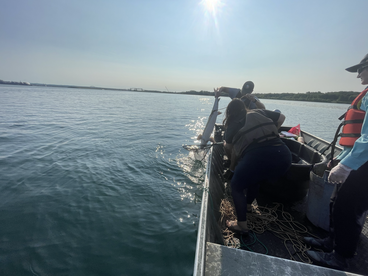
The following are strategies related to human dimensions of climate change included in the Midwest Climate Adaptation Science Center's 2023-2026 Science Agenda.
- 1.11. Assess the effects of human-centric adaptation on water quality and quantity for fish, wildlife, and ecosystems.
- 3.9. Assess the effects of climate change on recreational angling and subsistence fisheries.
- 4.9. Evaluate the social and economic effects of climate change on hunting, gathering, fishing, and wildlife viewing opportunities, outdoor recreation, and Tribal livelihoods.
- 5.5. Determine perceptions of and acceptance for climate adaptation for fish, wildlife, and ecosystems, including by private landowners and Indigenous communities.
- 5.6. Identify and assess the risks of laws, policies, regulations, and practices that are maladaptive or exacerbate the effects of climate change on fish, wildlife, and ecosystems.
- 5.7. Identify climate adaptation practices for fish, wildlife, and ecosystems that yield co-benefits (e.g., carbon mitigation, economic gain, social resilience, well-being of at-risk communities).
- 5.9. Identify barriers to and opportunities for the integration of climate adaptation in existing natural resource policies, program, and practices.
Read the full Science Agenda.
